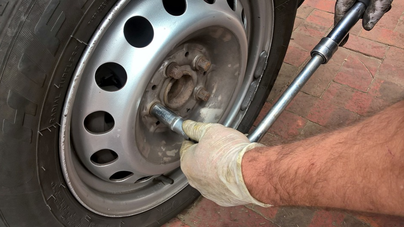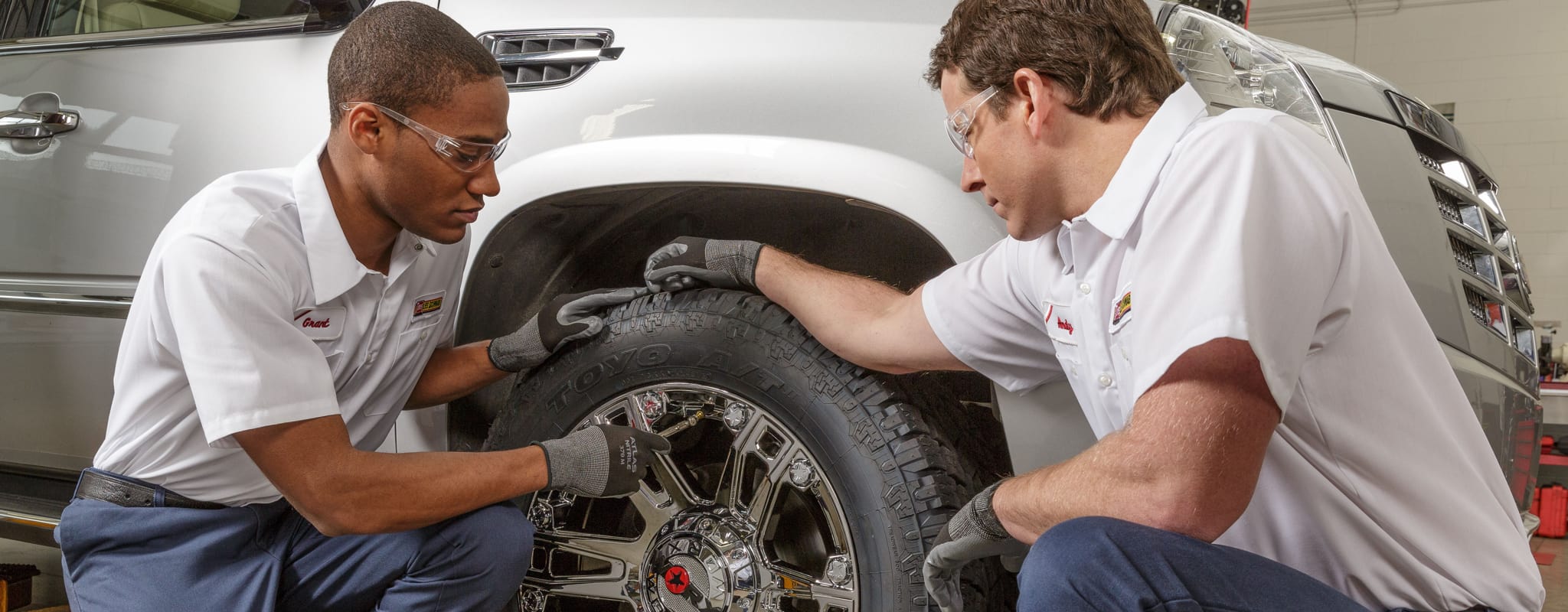Get Road-Ready with Expert GMC Tires Service at Morris Tires
Get Road-Ready with Expert GMC Tires Service at Morris Tires
Blog Article
Tire Solution: The Impact of Weather Condition Conditions
When it pertains to making sure ideal performance and safety and security when traveling, understanding the impact of climate problems on tire service is vital. From scorching warmth to icy roadways, each weather condition element can dramatically affect tire performance and overall driving experience. By diving right into the impacts of varying weather on tires, chauffeurs can gain beneficial understandings that may enhance their vehicle's efficiency and durability. In this conversation, we will certainly discover the intricate partnership in between weather and tire service, clarifying the importance of weather-specific tire maintenance methods and considerations.
Warm and Tire Efficiency
When subjected to high temperature levels, tires experience adjustments in performance that can dramatically influence vehicle security and handling. The warmth generated from extended driving or warm weather problems triggers the tire rubber to soften, leading to minimized step life and boosted wear.

Winter Impacts
Winter problems can have a significant influence on tire performance and safety. As temperature levels decrease, tire rubber can harden, causing decreased traction on icy or snow-covered roadways. In winter, tires might additionally shed air stress much more quickly, which can influence taking care of and fuel effectiveness. Furthermore, chilly temperature levels can cause tire sidewalls to stiffen, increasing the danger of damage from fractures or various other road threats.
To mitigate the impacts of chilly weather on tires, it is vital to routinely examine tire pressure and inflate them to the maker's recommended levels. Making use of winter season or all-season tires made for cool weather conditions can additionally improve traction and grip on icy or snowy roads. Appropriate tire upkeep, including normal evaluations for wear and damage, comes to be a lot more critical throughout chillier months to make certain ideal efficiency and safety.
Rainy Conditions Impact
During stormy problems, tire performance and safety and security can be substantially affected by the wet road surfaces and lowered exposure. The walk pattern of tires plays an important function in keeping traction on wet roads. Tires with worn-out treads are a lot more prone to hydroplaning, where a layer of water develops in between the roadway and the tire surface, leading to loss of grip. To combat this, vehicle drivers must frequently evaluate their tires for sufficient tread depth and think about buying tires particularly developed for damp problems.
Moreover, rainy weather can also lower exposure, making it challenging for motorists to see the roadway in advance plainly (GMC Tire Service). In such problems, it is important to change driving speeds accordingly and keep a secure adhering to distance to allow for abrupt quits. Appropriately inflated tires can also assist in preserving control on damp roads by providing better handling and grasp
Snow and Tire Safety And Security
Snow-covered roadways present special difficulties for chauffeurs, emphasizing the value of correct tire choice and maintenance. When driving in snowy problems, having the appropriate tires can make a considerable distinction in safety and efficiency. Winter season tires are developed with unique rubber compounds and walk patterns to provide far better traction on snow and ice compared to all-season tires. The much deeper footsteps and sipes of winter months tires help grip the roadway better, decreasing the risk of sliding and gliding.

Furthermore, vehicle drivers ought to think about mounting tire chains in severe snowy conditions. Tire chains supply extra traction by grasping the snow and ice, improving security and control. However, it is necessary to adhere to supplier instructions when making use of and installing tire chains to avoid damage to the tires and car. By selecting the best tires, maintaining appropriate inflation, and taking into consideration extra grip help like tire chains, vehicle drivers can enhance their security when browsing snow-covered roadways.
Weather-Related Tire Upkeep
When encountered with various weather, appropriate tire maintenance ends up being a crucial facet of vehicle safety and performance. Weather-related tire upkeep encompasses a series of practices targeted at guaranteeing ideal tire feature and longevity in various climate circumstances. One vital aspect of weather-related tire maintenance is tire pressure law. Varying temperatures can trigger tire stress to differ, impacting grip and gas efficiency. Regularly checking and changing tire pressure according to supplier recommendations is important for safe driving in changing climate condition. Furthermore, tire step deepness plays a considerable duty in dealing with various climate components. Tires with ample walk deepness provide better grasp on damp or icy roads, minimizing the danger of hydroplaning or skidding. When walk wear gets to a certain deepness is important for maintaining grip and security in damaging climate, checking tire walk frequently and replacing tires. By prioritizing weather-related tire maintenance, vehicle drivers can enhance safety and security, improve lorry performance, and lengthen the life-span of their tires.
Verdict
In final thought, weather condition conditions have a significant effect on tire efficiency and safety and security. From heat impacting tire stress and use to chilly weather condition minimizing grip, it is essential to take into consideration the weather condition when keeping and using tires.
In this conversation, we will discover the complex connection between climate conditions and tire solution, dropping light on the value of weather-specific tire maintenance methods and considerations.

Report this page